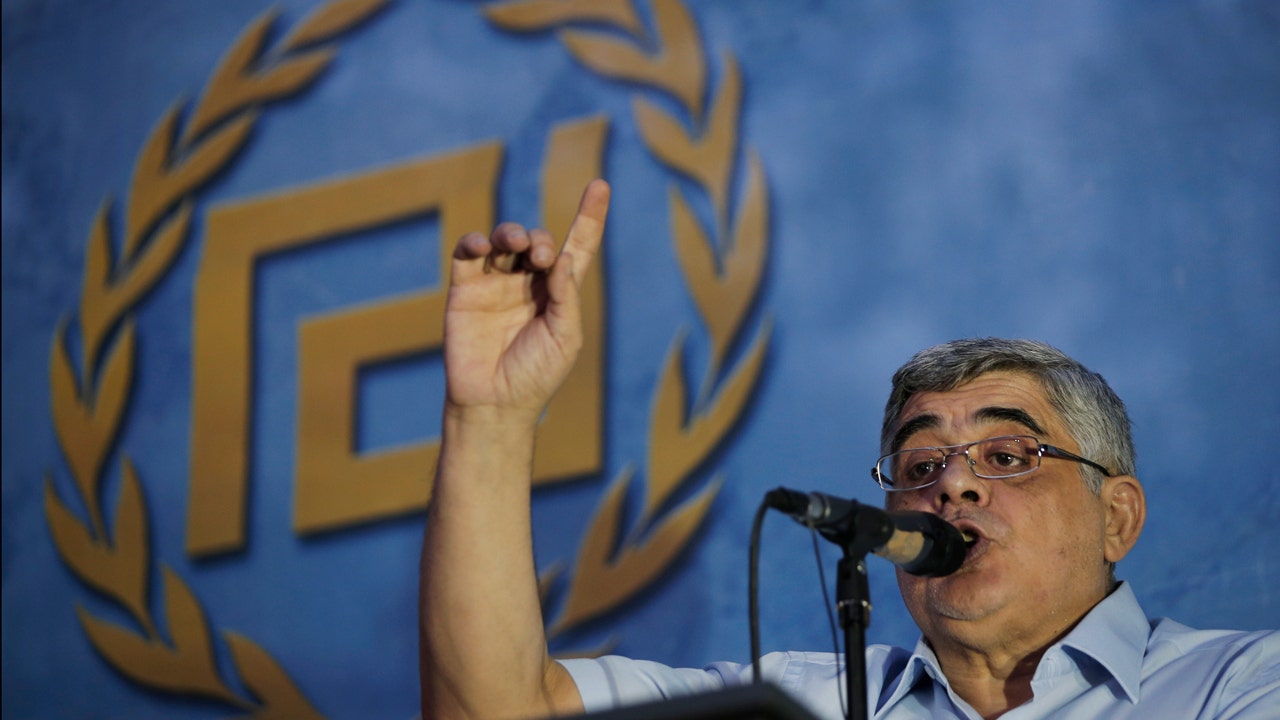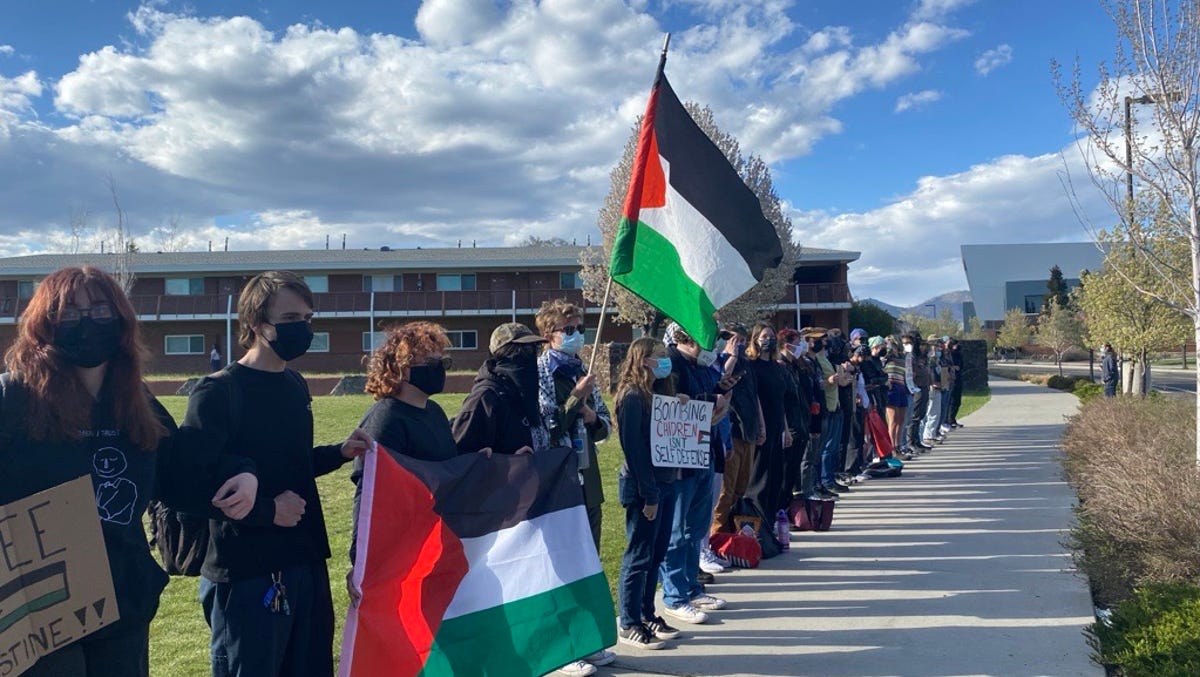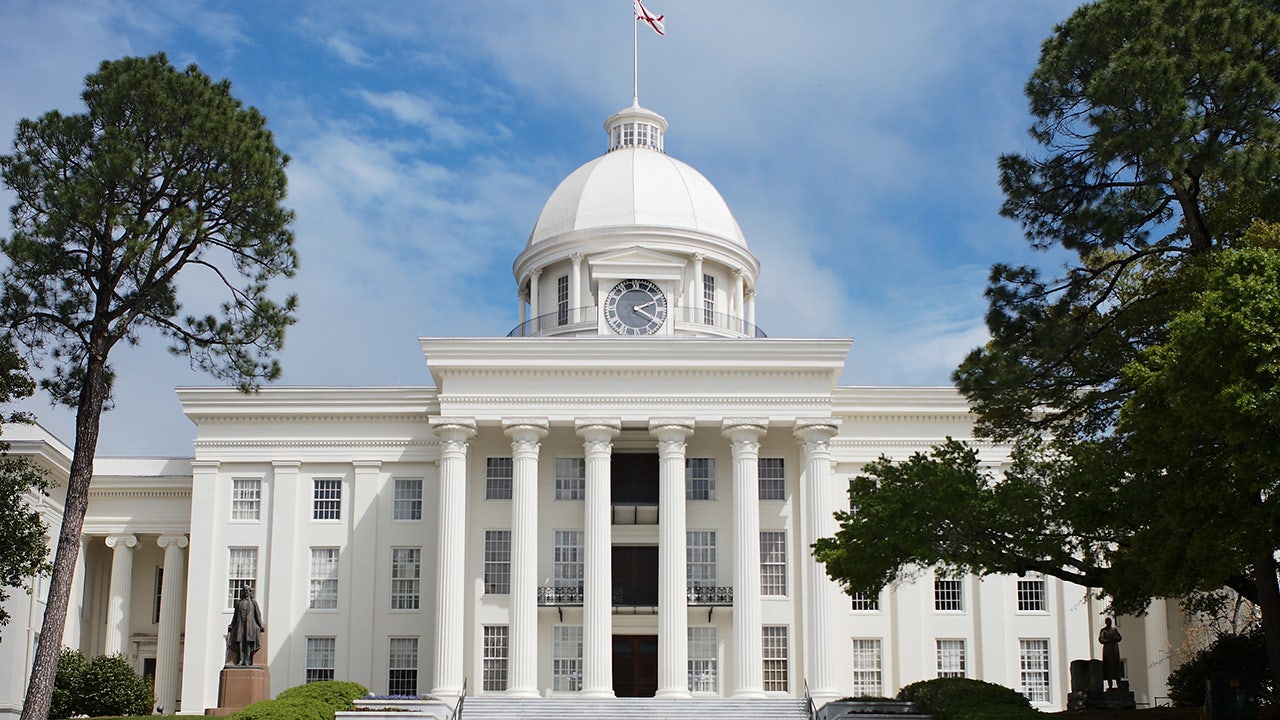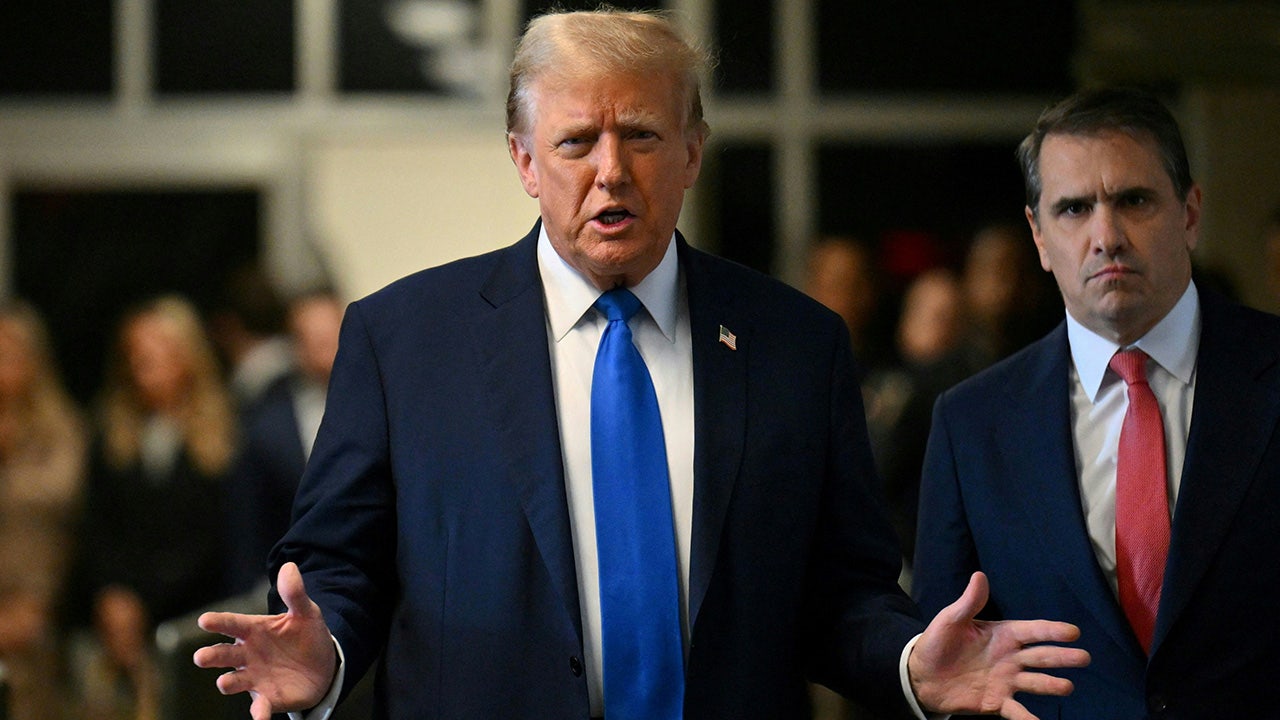World
Hezbollah chief warns Lebanon could be ‘exposed’ to more Israeli attacks

Nasrallah again pledges retaliation for killing of Hamas deputy chief al-Arouri, says Hezbollah ‘cannot be silent’.
The head of Lebanese armed group Hezbollah has said that all of Lebanon will be exposed if the group does not react to the assassination of Hamas deputy chief Saleh al-Arouri in Beirut this week.
Speaking in a televised address for the second time in less than a week, Hassan Nasrallah reaffirmed that Hezbollah “cannot be silent about a violation of this level”.
“This means that all of Lebanon will become exposed, all cities, villages, and figures will become exposed,” he said.
“The murder of al-Arouri … will certainly not go without reaction and punishment.”
Al-Arouri was killed in an alleged Israeli attack on a southern suburb of Beirut on Tuesday, a stronghold of Hezbollah.
Nasrallah’s comments come as Lebanon filed a complaint to the United Nations Security Council over the assassination of al-Arouri, calling it the “most dangerous phase” of Israeli attacks on the country.
The complaint said Israel used six missiles in the attack that killed al-Arouri and added that Israel uses Lebanese airspace to bomb Syria, the Reuters news agency said, citing the document dated January 4.
This is not the first time that Nasrallah promised retaliation. He had on Wednesday warned Israel against expanding its war, saying there would be “no ceilings” and “no rules” to his group’s fighting if Israel chose to launch a war on Lebanon.
“Whoever thinks of war with us – in one word, he will regret it,” Nasrallah said.
‘670 military operations’
Al Jazeera’s Imran Khan, reporting from Beirut, said Nasrallah reiterated a promise to retaliate.
Nasrallah said al-Arouri’s killing “will not go unanswered or unpunished”, and that Hezbollah fighters will use the “right place and the right time, and the field will respond”, Khan said.
Nasrallah also said “We have full knowledge of where Israeli military positions are,” and the Israelis “aren’t revealing the true number of their casualties, and the destruction of their equipment”, our correspondent added.
In his remarks, the Hezbollah leader said Lebanon’s southern border with Israel was a “key part” of the war, and that the group’s current operations along the border opened a “historic opportunity” for Lebanon to liberate its land occupied by Israel.
He added that the Islamic resistance in Iraq also has a “historic opportunity” to get rid of the United States presence in that country.
Nasrallah said Hezbollah fighters had conducted approximately 670 military operations on the Lebanon-Israel border, adding that the group destroyed a “large number of Israeli vehicles and tanks”.
He also said if the Israeli military managed to achieve its military goals in Gaza, it would then turn to Lebanon.
Since October 8 – a day after Israel launched its war on the Gaza Strip – continuing clashes between the Israeli army and Hezbollah along the Israel-Lebanon border have resulted in the deaths of dozens of Lebanese civilians and more than 140 Hezbollah members.
Israel and armed groups in southern Lebanon, particularly Hezbollah, have engaged in frequent back-and-forth exchanges across the United Nations-patrolled border.

World
CBS Fall Schedule: Tracker on Move, Georgie & Mandy Claim Sheldon’s Spot, Matlock Replaces Todd

ad
World
Head of Greek far-right Golden Dawn party is granted early release from prison

The head of Greece’s extreme far-right Golden Dawn party was granted conditional early release from prison Thursday, after serving part of his sentence for running a criminal organization blamed for violent hate crimes.
A council of judges accepted the request by Nikolaos Michaloliakos, 66, who had served the minimal legal requirement for early release. The decision also took into consideration that he was aged over 65, which increases the time he is formally considered to have served. He is in poor health and spent 18 months in pre-trial detention.
GREECE’S FAR-RIGHT GOLDEN DAWN, COUNTER-DEMONSTRATORS, CLASH IN ATHENS
Restrictions imposed on him include a ban on traveling outside the greater Athens region.
Nikos Michaloliakos, the leader of the extreme far-right Golden Dawn political party speaks during a pre-election rally, in Athens, Wednesday, Sept. 16, 2015. The head of Greece’s extreme far-right Golden Dawn party was granted conditional early release Thursday, May 2, 2024, from prison, after serving part of his sentence for running a criminal organization blamed for numerous violent hate crimes. A council of judges accepted the request by Michaloliakos, 66, who had served the minimal legal requirement for conditional release, which also took into consideration his age. (AP Photo/Lefteris Pitarakis)
Michaloliakos and five other former Golden Dawn lawmakers were convicted in October 2020 of running a criminal organization and sentenced to 13 years in prison. Other party members received lesser sentences, following a five-year trial.
Golden Dawn was founded as a Nazi-inspired group in the 1980s and rose to become Greece’s third-largest political party during most of the country’s 2010-2018 financial crisis. Its support later declined, and the party failed to enter parliament post-crisis.
The crackdown on the party followed the 2013 fatal stabbing of a left-wing musician in Athens, for which a Golden Dawn associate was given a life sentence.
Greek political parties and the family of the slain musician expressed dismay at Thursday’s decision.
World
UN, EU, US urge Georgia to halt ‘foreign agents’ bill as protests grow

Thousands gather in Tbilisi to protest against the bill, which passed its second reading in parliament this week.
The European Union, United Nations, and the United States have condemned legislation making its way through Georgia’s parliament on “foreign agents”, as thousands of protesters snarled traffic in the country’s capital Tbilisi on Thursday with a large new protest against the bill.
Protesters poured into Heroes’ Square, a key junction through which much of Tbilisi’s traffic passes between the city’s neighbourhoods. Long queues of vehicles remained blocked.
“We are all together to show the Kremlin’s puppets that we will not accept the government that goes against the Georgian people’s wishes,” said protester Giorgi Loladze, 27, from Kutaisi, Georgia’s third-largest city.
Tens of thousands of protesters had shut down central Tbilisi a day earlier in the largest anti-government rally yet. Police fired tear gas and stun grenades to clear some of them.
The bill – attacked by opponents as authoritarian and Kremlin-inspired – has completed two of three readings in the parliament and the latest comments reflected alarm in both Washington and Brussels over the country’s future direction.
The ruling Georgian Dream party says the law, which would require organisations receiving more than 20 percent of their funding from abroad to register as agents of foreign influence, is needed to ensure transparency.
The party’s billionaire founder said this week that Georgia must defend its sovereignty against Western attempts to dictate to it.
Crowds have protested nightly for weeks outside the parliament in Tbilisi. Inside the building, lawmakers have come to blows.
‘Deeply concerned’
The standoff is seen as part of a wider struggle that could determine whether Georgia, a country of 3.7 million people that has seen war and revolution since the fall of the Soviet Union, moves closer towards Europe or back under Moscow’s influence.
Gert Jan Koopman, director general of the European Commission’s enlargement directorate, reiterated the EU’s warning that the bill would put at risk Georgia’s hopes of becoming a member of the bloc.
“There are concerning developments in terms of legislation. The law … as it stands is unacceptable and will create serious obstacles for the EU accession path,” he told a news conference in Tbilisi.
Koopman said “the ball is very firmly in the court of the government”, adding it still had time to change course.
But the government – which put forward a similar law last year, only to withdraw it in the face of protests – has shown no sign it will climb down a second time, which could be damaging ahead of a parliamentary election in October.
UN rights chief Volker Turk on Thursday called on Georgia’s government to withdraw the bill and expressed concern at police violence against protesters.
The White House also expressed concerns on Thursday about the chilling effect such legislation could have on Georgians’ ability and willingness to express themselves.
“We are deeply concerned about this legislation – what it could do in terms of stifling dissent and free speech,” White House national security spokesman John Kirby said at a US briefing.
Earlier, US Ambassador Robin Dunnigan said the Georgian government’s choices “have moved the country away from its Euro-Atlantic future” and urged it to recommit to integration with the West.
In a statement, Dunnigan said that senior US leaders had invited Georgia to discuss the issue, but that the country had not accepted the offer.
Britain, Italy and Germany have also criticised the bill.
Georgia’s parliament on Wednesday approved the second reading of the bill, which the opposition says is modelled on a law the Kremlin has used to crack down on opponents in Russia.
Parliamentary debates on Thursday were cancelled after what officials called an “attack” on the legislature.
Georgian television on Thursday showed Tbilisi’s Mayor Kakha Kaladze berating a reporter who asked him about police actions at Wednesday’s protest, calling her a “shameless scumbag”.
Lawmakers are expected to give the bill its third and final reading in around two weeks.
-

 News1 week ago
News1 week agoLarry Webb’s deathbed confession solves 2000 cold case murder of Susan and Natasha Carter, 10, whose remains were found hours after he died
-

 World1 week ago
World1 week agoHaiti Prime Minister Ariel Henry resigns, transitional council takes power
-

 News1 week ago
News1 week agoFirst cargo ship passes through new channel since Baltimore bridge collapse
-

 World1 week ago
World1 week agoUS secretly sent long-range ATACMS weapons to Ukraine
-

 World1 week ago
World1 week agoSpanish PM Pedro Sanchez suspends public duties to 'reflect'
-

 News1 week ago
News1 week agoAmerican Airlines passenger alleges discrimination over use of first-class restroom
-

 World1 week ago
World1 week agoAsia bears biggest climate-change brunt amid extreme weather: WMO
-

 Movie Reviews1 week ago
Movie Reviews1 week agoHumane (2024) – Movie Review


















